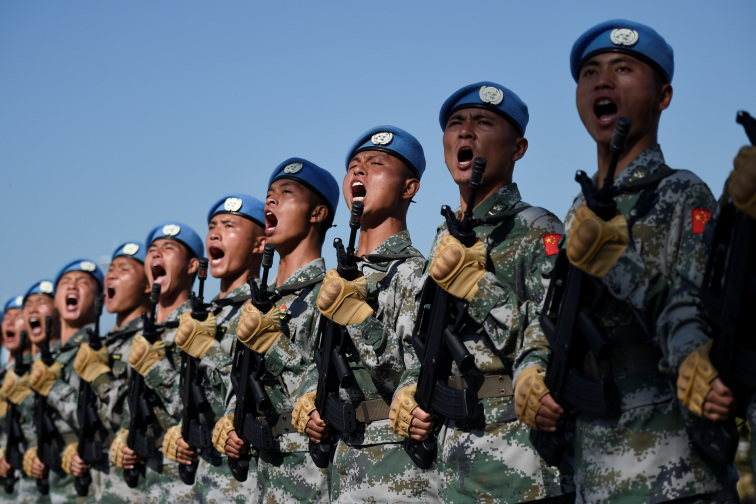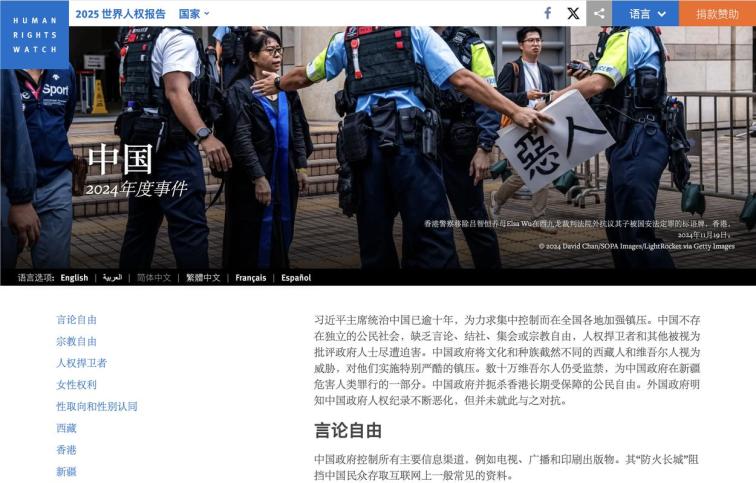Chinese-Australian journalist Cheng Lei was held in solitary confinement by the CCP for as long as three years.
[People News] Cheng Lei, a Chinese-Australian journalist who was unjustly detained by the CCP for more than three years, recently shared with the public that the fear created by the CCP’s tyranny is meant to control people in other countries, so that even when far from China, they do not dare to cross the CCP’s red line because of fear.
According to Dajiyuan, recently, at a public talk at the Gallery of Modern Art in Brisbane, Australia, Cheng Lei warned the public that Australians’ fear of the CCP is deeply ingrained. Cheng Lei said: “Sometimes when I take photos with some Australian Chinese, there are always people who refuse to be in the picture, the reason being, ‘I’ll be going back to China soon.’ That makes me feel strange.”
At the launch of the new book Cheng Lei: A Memoir of Freedom, co-hosted with Griffith Asia Institute, Cheng Lei emphasised: “Fear spreading so widely and so deeply is a very abnormal phenomenon.”
Cheng Lei mentioned another example: at a forum in Canberra, where one guest was said to hold anti-CCP views, the organisers had difficulty finding a Chinese interpreter willing to translate for the guest. Cheng Lei said: “Fear affects many people to the point that sometimes they don’t even feel it’s fear, or they don’t think they are losing freedom, because they haven’t had full freedom for some time.”
Cheng Lei recalled: at the Q&A session of the event that day, a young Hong Kong woman, worried for her family in Hong Kong, asked not to be photographed. Since 2020, when the CCP imposed the Hong Kong National Security Law, Hong Kong’s high degree of autonomy and democratic system have become an empty shell, and large numbers of Hong Kongers have been forced into exile overseas.
For Cheng Lei, who was secretly detained in China for three years, she perhaps knows very clearly what kind of impact the CCP’s terror has on a person’s mind.
In August 2020, Cheng Lei was unjustly detained by Chinese authorities and held in solitary confinement for long periods. She said, “Sunlight came through the window, but I only had 10 hours a year to stand under it.” During those three years, she never even saw a tree. The CCP accused her of “illegally providing state secrets overseas,” claiming she gave sensitive information to a foreign organisation. But Cheng Lei denied the charge. She was ultimately sentenced to 2 years and 11 months in prison and was released in October 2023, returning to Australia.
During the three years of detention, Cheng Lei overcame the CCP’s threats with strong willpower. After returning to Australia, she found that those bowing to the CCP’s violence and intimidation included not only ordinary people but also senior government officials.
Cheng Lei mentioned that during her detention, Australia’s Department of Foreign Affairs and Trade required all officials visiting China to raise her case with CCP officials. However, then-Victorian Premier Daniel Andrews never spoke up for her during her three years of detention. Last week, Andrews came under fierce criticism across Australia for appearing alongside Putin and Kim Jong Un during a Beijing military parade.
Cheng Lei also raised another issue: Australia’s dependence on trade with China is a major problem that must be faced.
Cheng Lei said, “We benefit and prosper from these businesses, but we also want to uphold our values.” “Ultimately, I feel defending freedom is my responsibility. Many others are working hard to do the same—if we stick to our integrity, if we dare to speak up when freedom is suppressed—this is a difficult and delicate balance.”
The Dajiyuan report noted that Cheng Lei’s remarks come as countries are paying close attention to transnational repression (TNR). The Group of Seven (G7) stated that transnational repression is a “form of foreign interference, where a state or its agents attempt to intimidate, harass, harm, or coerce individuals or communities abroad.” This strategy uses multiple methods, ultimately creating a “chilling effect” in society, making people afraid to expose human rights abuses or publicly criticise the regime in question.
The G7 statement pointed out: “Transnational repression often targets dissidents, journalists, human rights defenders, religious minorities, and members of identified diaspora communities.”
New Zealand’s intelligence agency directly identified the CCP as the “most active” foreign regime attempting to manipulate governments or societies to conform to its interests. In an assessment report, the agency listed a series of case studies demonstrating the CCP’s tactics, including controlling communication between affected communities and political leaders.
One case mentioned: “A New Zealand government official wanted to arrange sharing important security advice with a certain community, but was obstructed by a community leader supporting foreign objectives.”
So, where does people’s fear of the CCP come from? In Nine Commentaries on the Communist Party, there is a passage that may explain: “The repeated use of violence is an important means for Communist regimes to maintain rule. The purpose of violence is to create fear. Every political campaign is a fear-training exercise by the Communist Party, making the people tremble in submission, until they become slaves of fear.” △











News magazine bootstrap themes!
I like this themes, fast loading and look profesional
Thank you Carlos!
You're welcome!
Please support me with give positive rating!
Yes Sure!